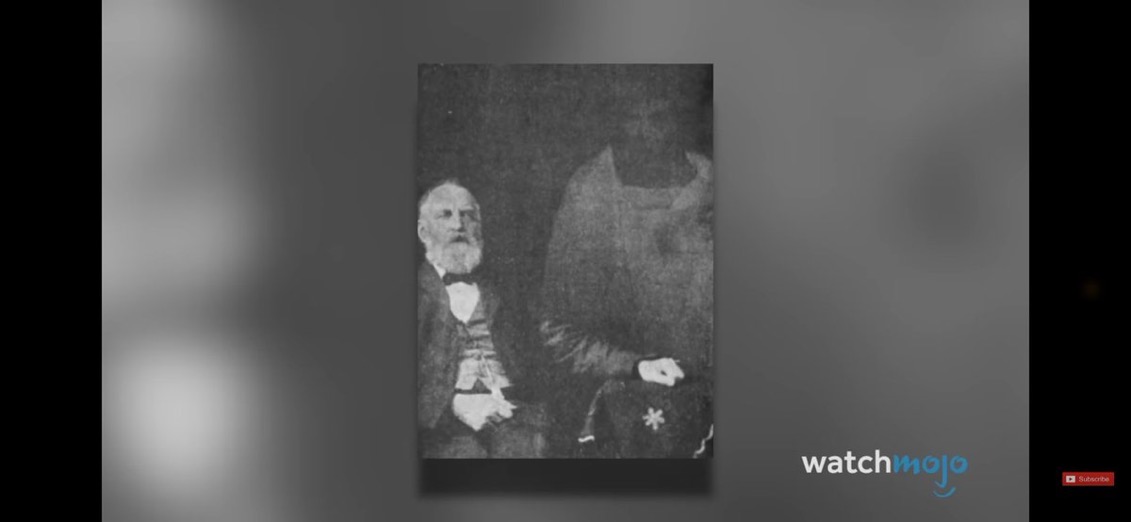Inside Pavements Movie With Director & Stars Joe Keery, Michael Esper
Writer-director Alex Ross Perry and stars Joe Keery and Michel Esper discuss their documentary-biopic-jukebox musical mashup and the magic of one of indie rock’s most celebrated frontmen
The prevailing initial state of the two actors tasked with portraying Pavement frontman Stephen Malkmus in Alex Ross Perry’s multifaceted, genre-warped film Pavements was, reasonably, confusion.
Pavements — which releases in theaters across North America June 6 — is nominally, and for the most part, a documentary. It follows Pavement as they prep for their 2022 reunion tour and uses archival footage to tell the story of a band of alternative-nation outsiders who made erudite, inscrutable, and irresistible tunes; navigated the post-Nirvana Nineties with blasé circumspection; broke up as cult heroes; and returned decades later as widely-recognized, era-defining greats.
But along with parsing and probing Pavement’s importance, Perry also wanted to explore the ways we bestow that importance. So, he cooked up the various kinds of cultural schlock that get pumped out when it comes time to celebrate (and profit from) legacy acts — a biopic, a jukebox musical, even a museum exhibit filled with phony and real artifacts — and combined them to create a Russian nesting doll of a film, genres stacked on top of one another, reality packed inside fiction. And for the actors Perry hired to star in his real-but-not-real biopic and musical, performing in Pavements was a confounding but also intriguing prospect.
Joe Keery, the Stranger Things star and Djo musician, who plays Malkmus in the Oscar-baity biopic-within-the-movie, tells Rolling Stone, “I didn’t understand the full context of the movie until I showed up a couple of days before and we were doing the [costume] fittings and stuff. “Then I started to wrap my mind around it. They had done the musical already, so I had the reference point of, ‘It’s this real thing, but it’s fake, and it exists within the world of the movie.’”
Michael Esper, an established theater actor, remembers his own bewilderment when Perry called him “out of the blue” to offer him the role of Essem, the Malkmus-esque (emphasis on the “esque”) lead in the film’s off-Broadway jukebox musical component, Slanted! Enchanted!
“I couldn’t tell how serious he was,” Esper says. “Like, how real do you want it to be? How much of a joke? Are we really doing this in front of people? How earnest am I supposed to be? Pavement is cool with this?” He adds with a laugh: “It was such an insane idea, and the potential for humiliation was so high.”
Perry was compelled to cram all of these sub-projects into Pavements because he firmly believes “we don’t actually want these things.” He argues, for instance, that no one is asking for a “cliché, birth-to-death biopic” of Kurt Cobain, yet the likelihood of one existing, eventually, seems disconcertingly high. Perry also saw huge potential in this multigenre approach. “The truth I’m reaching for,” he says, “is [that] this format of prismatic, hall-of-mirrors storytelling is the only way to even consider approaching the truth of any great artist.”
Pavement, and Malkmus in particular, is uniquely positioned for this kind of interrogation. Perry argues the frontman is up there with 20th-century geniuses like Bob Dylan and David Bowie “because he’s this enigma — he’s so fascinating, and the music is so good.” Keery also uses that word — “enigma” — while Esper, a longtime fan who was scouring zines and VHS tapes in the Nineties for anything Pavement-related, calls Malkmus an almost “mythical figure.”
And like Bowie or Dylan, Malmkus has played with personas, cultivating a distance between his public-facing artistic self and the human behind the mask. Perry notes that, since Pavement began, “Malkmus has presented the idea that he is playing a character” known as “The Singer.”
“He christened himself with this moniker at the age of, like, 21, to become this other personality,” the director says. “To hide behind the idea of, ‘That’s what the singer would do.’” (He cites, by way of example, two early Pavement tunes in this vein, “Our Singer” and “Shoot the Singer.”)
So as Perry set out to design the Malkmuses that Esper and Keery would portray in Pavements, he made sure they had “nothing to do with the real person.” That’s certainly the case with Essem, a small-town boy with big rock dreams, who moves to the city with his girlfriend, becomes successful, meets another girl, and ultimately has to choose between the two. (That this love triangle framework maps almost exactly onto last year’s Dylan biopic A Complete Unknown feels like an affirmation of Perry’s feelings towards the legacy-act industrial complex.) The name Essem is, of course, a phonetic representation of Malkmus’ initials, S.M. But in terms of actual similarities between character and person, there’s only the vague echo of Malkmus’ own journey from the Central Valley suburb of Stockton, California, to New York City in pursuit of rock & roll.
“To try and do some kind of real, authentic characterization of Stephen Malkmus in this context felt so wildly inappropriate,” Esper says. “To try and put him in a jukebox musical just feels like it wouldn’t serve what they were trying to do [with the film]. It functioned like a ride — you just throw yourself into it and perform that as best you can.”
As for the embedded biopic, titled Range Life, Keery says his performance “is not a direct reflection of Malkmus” but “the punch-up Hollywood biopic version that they would write” if such a film were to be made. He continues: “It’s not exactly who he was. It’s sort of the antithesis of the guy.”
(Keery also gets to send up his own profession in several behind-the-scenes-featurette-style sequences, in which he descends into Method acting madness — asking to be called “Stephen,” working with a voice coach to perfect his imitation of Malkmus’ fried California tone, and eventually worrying he might’ve gone too far.)
The Range Life scenes primarily fictionalize a real pivot point in Pavement’s story: their brush with Nirvana-sized success with “Cut Your Hair” and 1994’s Crooked Rain, Crooked Rain, followed by the underappreciated triumph of their third album Wowee Zowee. It’s perfect fodder for overwrought episodes in which the band and their Matador Records bosses (played by Jason Schwartzman and Tim Heidecker) debate artistic integrity and commercial reality. The most melodramatic moments are emblazoned with an awards-thirsty “For your consideration” watermark. And yet, it’s still rooted in something real, because Perry plucked much of the heavy-handed dialog Keery delivers verbatim from the Wowee Zowee press kit, contemporaneous Malkmus interviews, and things Malkmus told Perry himself.
Keery says it was “stressful” at times to navigate this multifaceted, hyper-meta narrative, but also fun. “I enjoyed being put into this gray area where it’s like, ‘Is this really happening? Is this shtick?’ It felt like the perfect way to pay homage to the band.”
Perry wanted to preserve a sense of mystery around Malkmus, one epitomized by an early shot of the frontman hunched over a desk, writing a set list, back to the camera. “You obviously see him throughout the movie, but you see him from the back,” Perry says. “We see Joe and Michael from the front, but the front has a mask on.”
Mysterious as Malkmus may be, Perry’s instinct reflects something that distinguishes Malkmus from so many other mythical, enigmatic artistic geniuses we scrutinize. Esper pinpoints it, too, when discussing all the time he spent as a teenager poring over Pavement lyrics, learning the band’s songs on guitar, and reading any interview he could find: a wariness of ever getting “too close to knowing too much about” Malkmus himself. This was partly because, Esper jokes, “I felt like I would discover that he would hate me.” But it was also the sense that behind the Singer was just a normal guy.
“I did feel like to figure out too much about him, his personal history, or even what his intention was lyrically or musically, was a mistake,” Esper says. “I had some kind of instinct around that boundary, where [with] other musicians, I would do a really deep dive. I’d want to know everything about Bowie or Lou Reed. With him, I really didn’t want to know that much.”
Having studied and spent time with him, Keery describes Malkmus as someone who’s “just doing things because he loves them. Or not doing things because he doesn’t [love them]. Which is something I admire.”
And Perry says that while making Pavements he did get to glimpse the “big Rosetta Stone” when he watched Malkmus interact with his wife and children. “That’s the guy. That’s a real person,” Perry says, while also stressing that those moments were completely irrelevant to the film.
“There is no single truth to reach with this kind of character,” Perry says. “The movie could never singularly decode who this man actually is, nor would that be of any interest to me. The movie can only address the buffoonery of other works of art that attempt to do a version of that.”
Nowhere does the film distill this ideal better than the scene where Keery is working with the voice coach and shows her what he says is a photo of Malkmus’ actual throat, hoping it might unlock the secret to a perfect performance.
Asked — half as a joke, but also out of curiosity to know the extent to which the bit was committed — if that was indeed a photo of Malkmus’ throat, Keery deadpans, “He wouldn’t release that. That was a step too far. But I’m still hunting that down. I’m determined to get that tongue pic. I think it will reveal a lot for everyone out there.”












